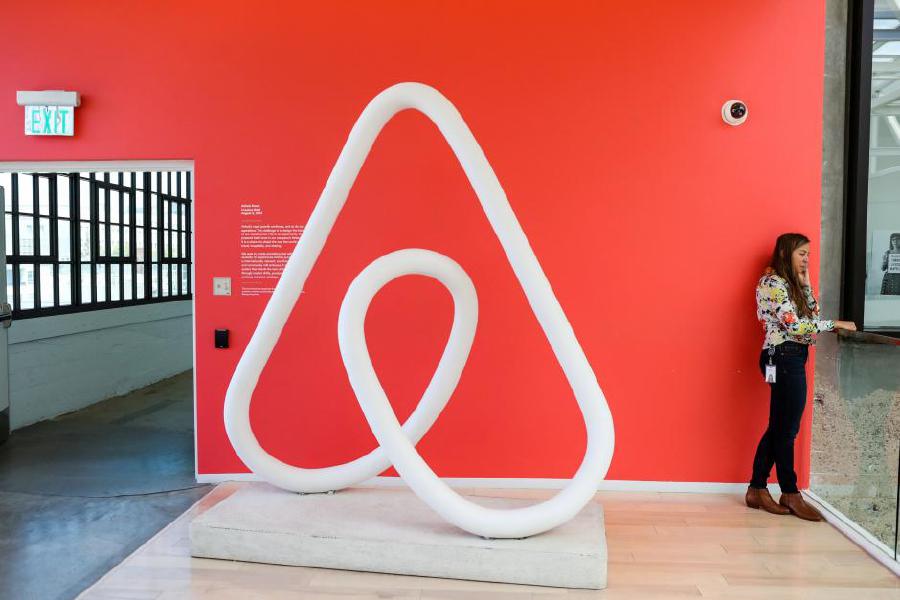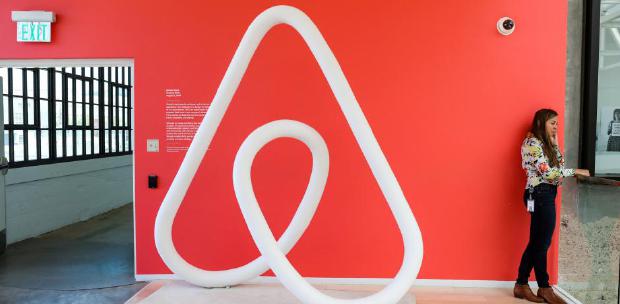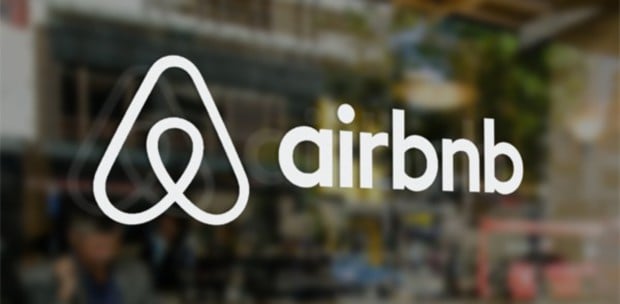HOW other cities worldwide tackle their Airbnb problems are being studied to see if the home-sharing business could be legalised or regulated in Penang.
The office of the Penang State Exco for Tourism Development, Arts, Culture and Heritage (Petach) is studying their policies to tackle the issue of residential home owners who rent out their units as if they were running a hotel or serviced apartment.

Its exco member Yeoh Soon Hin (pic) said the global home-sharing business was quite established in Penang now that when people buy a house or condominium unit, someone might approach them and offer to guide them to sign up with Airbnb and make money from their new property.
He told the assembly that Penang Global Tourism had met with Airbnb’s management team to discuss how to regulate the business.
“Airbnb told us that they are ready to cooperate and register Airbnb units in Penang with the local authority, but we have no laws or policies for this yet,” he said.
Yeoh said in San Francisco, Airbnb operators are limited to renting their homes to a maximum of 90 days a year.
“In Catalonia, Spain, Airbnb operators can be fined up to 30,000 Euros (RM140,000) and the unit owners fined up to 90,000 Euros (RM420,000) if there are complaints.
“In Singapore, the Urban Redevelopment Authority is proposing to limit Airbnb units to only allow up to six people each time to rent them and for only up to 90 days a year.
“For strata units, Singapore plans to allow it only if at least 80% of all unit owners in the building give consent.
“Japan enacted a law to allow home-sharing of units for only up to 180 days a year,” he said when replying a question from Daniel Gooi Zi Sen (PH-Pengkalan Kota).
Gooi said he was concerned because despite strong enforcement from Penang Island City Council since 2017 to stop residential property owners from using their units commercially, the Airbnb portal lists thousands of units in Penang.
“We cannot deny property owners from benefitting from their assets, but we also cannot let them continue to operate without paying their dues such as commercial assessment rates or the hotel fee,” he said.
Yeoh said Petach was studying how Airbnb operators are regulated while waiting for the federal government to draft laws on home-sharing.
“We raised the issue and were told that the Housing and Local Government Ministry and the Tourism, Arts and Culture Ministry are studying possible laws on this.”
Yeoh said the business was unfair to neighbours, the hotel industry and local authorities.
“They are paying assessments and utility rates for residential units but are using those units commercially while legal hotels that comply with all laws such as safety and traffic provisions pay much more.
“The peace and privacy of their neighbours are being intruded upon,” Yeoh said.
He said his team in Petach was also considering the possibility of recommending that Airbnb operators be charged double or triple the current residential assessment rates that they are paying now after they are legalised.
By arnold loh and r. sekaran at the penang state assembly
MUCH has been said about Airbnb in the news of late. The Malaysian Association of Hotels (MAH) Penang branch has claimed that the emergence of Airbnb and illegal accommodation are among the main causes for Penang hotel occupancy rate to decline.
Another news report indicated that Airbnb operators are required to register with Kuala Lumpur City Hall. At this point in time, it is vital to see the concept of Airbnb. The platform was started to connect people who were looking to rent their homes to those who wanted hotel-free stay accommodation for short periods. The reason for the registration must be for the purpose of regulation by the authorities.
The claim by MAH that the emergence of Airbnb has caused hotel occupancy rates to drop must also be examined.
In terms of cleanliness and hospitality, although hotels do fit the bill, not all hotels are in that category. All hotels must be refurbished and kept clean at all times. It may be a bit too much to ask for luxury bedding or first class service, but cleanliness and pleasant service is not too difficult.
Airbnb hosts are conscious about their guests and the reviews that are given on the website. They go the extra mile, and it is not always accurate to say that Airbnb is cheaper and therefore people choose them over hotels. It is the space, the home away from home concept, and being looked after, the occasional bottle of wine left for guests, the fruit basket, the bottles of fruit juice and mineral water in the fridge — all of these go a long way in wooing guests.
In terms of protection for the hosts and the guests, Airbnb has enough protection in place. It is up to the renter to choose who they want to rent out to. Those who want to rent and those who are renting out their properties have their profiles. Reviews as to the safety of the place and its convenience — all can be seen from the website. It is a very transparent website and no one can complain that they were not aware that there was a danger or that they did not get their money’s worth. There are times that unfortunate Airbnb hosts unwittingly allow roguish guests and their premises are wrecked. The Airbnb hosts too, have a risk to take.
From the reports, it is unclear of the need for Airbnb to be registered or regulated. Hotel operators are required to register as it is a business. Airbnb is a service platform and not a business. For hosts, it is an additional income — especially for the elder population whose children have left, or even for those with university fees to pay, this additional income will be a good supplement. Unlike hotels and motels, Airbnb operators are there on a temporary basis. Sometimes, the owner may get a long-term tenant, and may not want to continue with the Airbnb concept.
Maybe we can take a leaf from countries where Airbnb has been regulated. In Los Angeles, United States, a regulation was passed for short-term rentals (vacation) with an initial cap on rentals for up to 120 days with flexibility to increase that number of days.
In New York, it is illegal to rent out an entire residence for less than 30 days. Short-term rentals are permitted if the homeowner is also staying there throughout the rental period and there are no more than two renters. This would be ideal for an elderly couple who would enjoy the company of young tourists who would in turn enjoy being in a home environment.
In Japan, anyone wanting to list their property on Airbnb will need to register with the local government, who will conduct fire and safety checks on the premises. The new regulations also limit rentals to 180 days per year.
Singapore has prohibited public housing rentals that are under six months, or three months in the case of private housing without the approval of the Urban Redevelopment Authority. In London and Paris, new laws have limited short-term rentals up to 90 days per year, and Liverpool City Council has pushed for national regulations to ensure that landlords register short-term rental properties.
Regulation is of critical importance in shaping the welfare of economies and society. Any form of regulation must work effectively and serve the public interest. Government agencies, in this case, the local councils are responsible for implementing regulatory policies and must be aimed towards protecting the consumer. When imposing such regulations on individuals, such as Airbnb hosts, there must be a goal that will help the government to achieve its purpose. The objective of a government or regulatory body is to ensure better and cheaper services and goods, and to provide a fair competition to any particular industry without encouraging a monopoly. Airbnb may be regulated and the town and city councils may want to draw up guidelines following from the examples cited above.
By
GRACE XAVIER
Grace Xavier is research fellow at the Faculty of Law, Universiti Malaya and she can be reached at gracem@um.edu.my
Using Airbnb to settle mortgages
Survey: Hosting helps to repay loans, provide extra income
https://www.thestar.com.my/business/business-news/2019/07/03/md-the-cost-and-security-issue-of-airbnb/?jwsource=cl
PETALING JAYA: More Malaysians are relying on Airbnb to settle their mortgages given the property overhang that is engulfing the sector.
According to an Airbnb survey of more than 2,000 Malaysian hosts and guests, half of the Airbnb hosts said it had helped them pay for their homes while 40% said Airbnb provided a supplementary income for them to make ends meet.Malaysia is Airbnb’s fastest growing country in South-East Asia for the second consecutive year.
It saw more than 3.25 million guests in Malaysia over the past 12 months ended July 1, which translated to a 73% increase from the previous period.There are more than 53,000 Airbnb listings in the country.
Axis REIT Managers Bhd investment head and former Malaysian Institute of Estate Agents president Siva Shanker said many of the Airbnb hosts were investors and speculators who purchased the properties during the upturn, with the intention of selling them at a higher price.
“However, when the property market started to make a turn for the worse, many of these speculators found it difficult to sell or rent out their units but at the same time they needed income to service their loans,” he told StarBiz.
Siva said many of the buyers and investors had bought the units on the advice of some people with questionable skills and credentials.
“Many of the people, who claimed to be experts, gave false assurances that the properties could be sold at a premium of up to 40% within a couple of years, or that they would be able to get high rental yields.
“This is essentially a get rich quick scheme and many people believed in them. But then the market crashed and many of the buyers are saddled with a property that they can’t sell or rent out.”
Siva said many of the so-called “advisers” had rebranded themselves as Airbnb consultants when the property market slumped.
Airbnb is an online booking platform that allows people to rent out their properties or spare rooms to guests.
PPC International managing director Datuk Siders Sittampalam said the concept of Airbnb needs to be regulated.
“It’s never been regulated in the past, especially in terms of taxes. How do you determine things such as cost and security?”
Siva concurred that proper regulation need to be put in place to for Airbnb operators.
“You don’t know who’s going into your apartment. Every other day, your occupants are changing.
“They could be illegal immigrants, running criminal activities, being a nuisance and disturbing the neighbours.
“How is the unit considered ‘gated and guarded’ when the owner is the one that opens the door to these strangers?”
With no proper regulation in place, Siva said the value of the apartment will deteriorate.
“The owner is running it like a hotel, except he doesn’t have the upkeep skills of a hotelier. Within a year, the apartment will look run down. By then, new properties will be up in the market and new owners will be looking to rent them out.
“The owner of the run down apartment is going to have difficulties finding tenants, but he still needs to fulfil his monthly mortgage. Eventually, it becomes a vicious cycle. To stop this, we need to educate the public and get rid of the self-proclaimed property gurus.”
Another concern is the Airbnb having a huge impact on the local hotel industry.
According to Impiana Hotels Bhd executive director Azrin Kamaluddin, hotels that havemore than four stars will face limited to no impact from the rising popularity of Airbnb.
“The hotels offer distinct product differentiation as they provide experience and service to guests.
“What Airbnb does is offer accommodation as a commodity.
“I believe that owners of four and five star serviced residences that do not lease back their units to operators as well as hotels that are three stars and below would be disrupted by Airbnb.
“It is imperative for hotels that have three stars and below to reinvent themselves to stand out from the competition posed by Airbnb,” he said.
On the potential launch of Airbnb Luxe, Azrin said it would not have an impact on four to five-star hotels, given the relatively small volume and higher price tag of US$1,000 per night.
Siders concurred that Airbnb would only have an adverse impact on budget hotels.
“The four-star and five-star hotels offer different types of services and amenities.”
Source link
Read more:
















